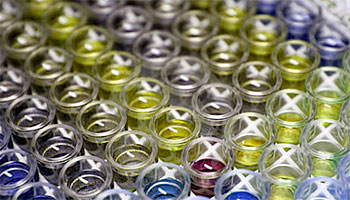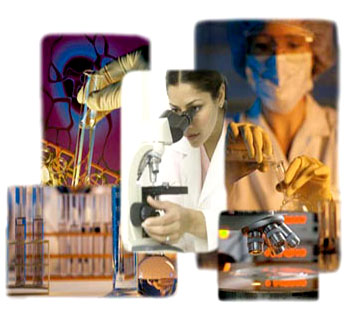 Chemical Tests
An immunoassay is a specific type of biochemical test that measures the presence or concentration of a substance.
Chemical Tests
An immunoassay is a specific type of biochemical test that measures the presence or concentration of a substance.
Clinical biochemistry (also known as chemical pathology and clinical chemistry) is the area of clinical pathology that is generally concerned with analysis of bodily fluids.
The discipline originated in the late 19th century with the use of simple chemical tests for various components of blood and urine.
Subsequent to this, other techniques were applied including the use and measurement of enzyme activities, spectrophotometry (used mainly in identifying the chemical bonds within a compound to establish its purity), electrophoresis (a technique used to biochemistry and molecular biology to separate a mixed population of DNA and RNA fragments by length, to estimate the size of DNA and RNA fragments or to separate proteins by charge) and immunoassay (a specific type of biochemical test that measures the presence or concentration of a substance, referred to as the “analyte“, in solutions that frequently contain a complex mixture of substances. Analysis of biological liquids such as serum or urine are frequently assayed using immunoassay methods .
